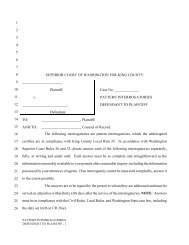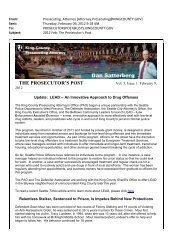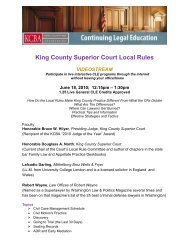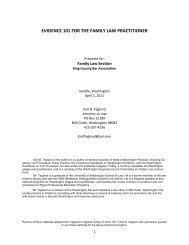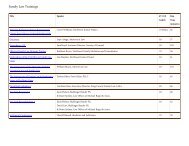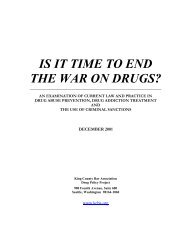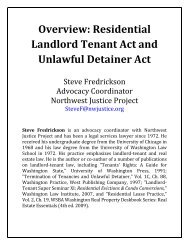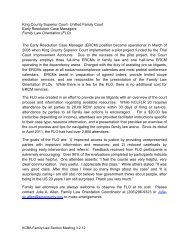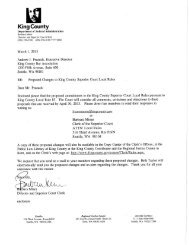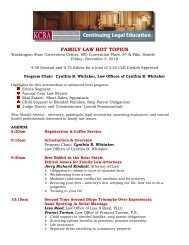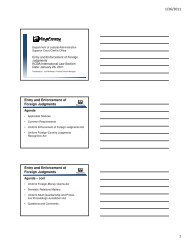Effective Drug Control: Toward A New Legal Framework
Effective Drug Control: Toward A New Legal Framework
Effective Drug Control: Toward A New Legal Framework
You also want an ePaper? Increase the reach of your titles
YUMPU automatically turns print PDFs into web optimized ePapers that Google loves.
have exclusive authority to exercise their police powers, commonly understood as the<br />
protection of “health, welfare, safety and morals,” defined by a Washington court as:<br />
[an] attribute of sovereignty and an essential element of a<br />
state’s power to govern, which cannot be surrendered, in<br />
the exercise of which a state may prescribe laws intended<br />
to promote health, peace, morals, education, good order<br />
and the welfare of the people, and the only limitation upon<br />
which is that it must reasonably tend to correct some evil<br />
or promote some interest of the state. 510<br />
In the federal system, states’ police powers give them primary authority for<br />
defining and enforcing the criminal law in particular. 511 States not only have the authority<br />
to protect the health, welfare and safety of their citizens pursuant to their police powers,<br />
but also the constitutional obligation to do so. 512<br />
Until the early 20 th century the Tenth Amendment was frequently invoked to<br />
curtail powers expressly granted to Congress, including the power to regulate commerce<br />
and to lay and collect taxes. 513 The modern recognition of federal power under the<br />
Commerce Clause, however, has rendered the Tenth Amendment merely a truism and<br />
little more than a quaint notion of constitutional history. The U.S. Supreme Court under<br />
Chief Justice Rehnquist has attempted to revive the “states’ rights” doctrine as embodied<br />
in the Tenth Amendment, but only tentatively and in selected cases. 514<br />
FEDERAL ENCROACHMENT ON STATES’ RIGHTS<br />
There is a growing body of federal criminal law, which most prominently<br />
includes drug-related crimes, some of which are capital offenses. No general police<br />
power is supposed to exist on the federal level, but the courts have long recognized that<br />
law enforcement activity by federal agents may look like the exercise of police power. 515<br />
The authority to “regulate” such criminal conduct on the federal level is founded on other<br />
constitutional provisions, especially the Commerce Clause today.<br />
Federal Commerce Power<br />
The U.S. Constitution grants the Congress “the power to … regulate Commerce<br />
with foreign Nations, and among the several States, and with the Indian Tribes.” 516<br />
Federal commerce power was initially understood by the courts simply as the authority to<br />
reduce barriers to free trade between the states. 517 In the early 20 th century, however, the<br />
interpretation of federal commerce power began to expand, allowing congressional<br />
intervention in activities that had only a “substantial economic effect” or “close and<br />
substantial relation” to interstate commerce, 518 and to activities that were part of the<br />
“stream of commerce.” 519<br />
With the <strong>New</strong> Deal in the 1930s came a vast expansion of federal authority and<br />
the courts’ validation of that authority, particularly through broader interpretations of<br />
federal commerce power. 520 By the 1940s, activities that, in their "cumulative effects,"<br />
would affect interstate commerce were deemed within federal jurisdiction, even trivial



